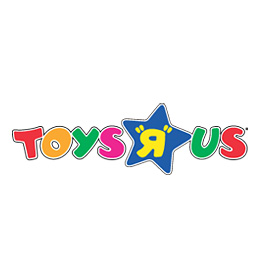The federal Equal Employment Opportunity Commission recently issued revised “Q&A” documents addressing how the Americans with Disabilities Act (ADA) applies to applicants and employees with four specific disabilities:
Tags: Disabilities, HR Allen Consulting Services, discrimination, HR Informant, EEOC
The federal Equal Employment Opportunity Commission (EEOC) recently sued Toys “R” Us, Inc. for allegedly failing to provide an interpreter to a deaf applicant during an interview.
Tags: ADA, Americans with Disabilities Act, HR Allen Consulting Services, discrimination, HR Informant, EEOC, Equal Employment Opportunity Commission, disability discrimination
The Wall Street Journal’s At Work blog recently covered research showing that hiring and dating may not be that far apart.
The study, conducted by the Kellogg School of Management, found that hiring managers approached the candidate evaluation process in a manner that resembles selecting romantic partners.
Tags: hiring managers, interviewing candidates, HR Allen Consulting Services, discrimination, Employers, HR Informant
Meal and rest period cases continue to arise after the welcomed California Supreme Court decision in Brinker v. Superior Court.
Related cases were placed on hold pending the Brinker decision, and some have been decided on review. In two of those cases, Flores v. Lamps Plus (Lamps Plus Overtime cases) and Hernandez v. Chipotle, courts issued decisions that were favorable for employers — in both, the courts denied class certification.
The Brinker court held that employers must only provide a meal break and not ensure it is taken. In light of this finding, the Lamps Plus and Hernandez courts found that whether the employer was liable for a meal break violation required an individualized inquiry as to why any particular employee missed a specific break.
As a result, class certification was not appropriate because courts would have to consider individual issues and facts to make a determination about employer liability. These cases were both initially published.
However, the employee plaintiffs asked the California Supreme Court to review the decisions. The Supreme Court denied review, but at the same time depublished the cases. The decision to depublish these cases is an indicator that the Court disagreed with the underlying analysis on the class certification issue.
California employers still face a tough legal landscape. Wage-and-hour class action suits will not disappear any time soon.
Tags: Brinker decision, Brinker v Superior Court, ensure meal break, Flores v. Lamps Plus (Lamps Plus Overtime cases), Hernandez v. Chipotle, provide meal break, HR Allen Consulting Services, discrimination, HR Informant
Employers will need to change notices, postings and employee handbook policies related to discrimination and harassment prevention to reflect two recently signed bills, AB 1964 and AB 2386.
Religious Dress/Grooming
AB 1964 amends Government Code sections 12926 and 12940 and clarifies that the Fair Employment and Housing Act’s (FEHA) discrimination protections and reasonable accommodation requirements cover religious dress practices and religious grooming practices.
As stated in the analysis of the bill, the intent is to “provide clarity and ensure that all religions receive equal protection under the law.”
Importantly, the law specifies that an accommodation is “not reasonable” if the accommodation requires segregation of the individual from other employees or the public.
Breastfeeding
AB 2386 amends California Government Code Section 12926 and makes it clear that breastfeeding is protected by law and discrimination on that basis is illegal.
The new legislation was enacted, in part, to reflect a decision by the Fair Employment and Housing Commission (FEHC) in 2009 in which an employee was terminated because she was nursing her baby during her lunchtime break.
Because the FEHC’s decision was designated as having precedential authority, such discrimination is a violation of FEHA.
Updated Poster/Employee Handbook
HR Allen's 2013 California and Federal Employment Notices Poster and Employee Handbook will include changes to policies and posters as a result of AB 1964 and AB 2386.
Author: HR Watchdog, HRCalifornia’s Employment Law Blog, © California Chamber of Commerce
Tags: Posters and Notices, HR Allen Consulting Services, discrimination, HR Informant
Employers with 100 or more employees must file the Employer Information Report EEO-1 annually on September 30. The EEO-1 Report must be filed with the U.S. Equal Employment Opportunity Commission's (EEOC) EEO-1 Joint Reporting Committee.
Tags: Reporting Requirements, HR Allen Consulting Services, discrimination, HR Informant
The Department of Labor’s (DOL) Veterans' Employment & Training Service (VETS) announced that it extended the 2012 deadline for federal contractors to submit their VETS-100/VETS-100A reporting forms from September 30, 2012 to October 31, 2012.
Tags: Reporting Requirements, HR Allen Consulting Services, discrimination, HR Informant, Hiring
The federal Occupational Safety and Health Administration (OSHA) recently issued final rules implementing whistleblower provisions of two acts:
Tags: Consumer Product Safety Improvement Act of 2008, federal OSHA, OHSA, Surface Transportation Assistance Act, whistleblower protection, HR Allen Consulting Services, discrimination, HR Informant, employee
Federal and state laws prohibit discrimination on the basis of military status. Recently, a California court addressed for the first time whether supervisors could be held personally liable for military service discrimination under state law.
Tags: employee termination, employer, military leave, leave, employees, Discrimination in the Workplace, discrimination
In this case, a paralegal alleged that her supervisor sexually and racially harassed her. The FEHC found that alleged conduct did not constitute sexual or racial harassment. However, the employer was found liable in failing to take all reasonable steps to prevent discrimination and harassment from occurring. The employer: (1) did not have a written anti-harassment policy; (2) did not conduct trainings for its managers or employees in harassment or discrimination prevention; and, (3) failed to investigate after the paralegal complained of the harassment.
The FEHC is a quasi-judicial administrative agency which enforces California civil rights and other laws regarding discrimination in employment, housing, and public accommodations. The FEHC conducts hearings and issues administrative decisions in cases prosecuted before it by the California DFEH. If it finds an unlawful practice occurred, it can order a range of remedies including back pay, compensatory damages, administrative fines and civil penalties, injunctive relief, and reinstatement. The FEHC’s decision can be appealed to California Superior Court for review.
What does this mean to employers? Employers may be liable for failing to take all reasonable steps to prevent discrimination and harassment, even if there is no underlying discrimination or harassment according to the FEHC. The administrative case further reinforces the importance of employers to maintain written anti-harassment policies, conduct trainings for managers and employees in harassment and discrimination prevention, and timely investigate claims of such conduct.
By: David Wang
Tags: DFEH, Tags: Articles, decision, investigate, prevention, train, administrative, Uncategorized, employees, California, discrimination, Employers, harassment, FEHC




















